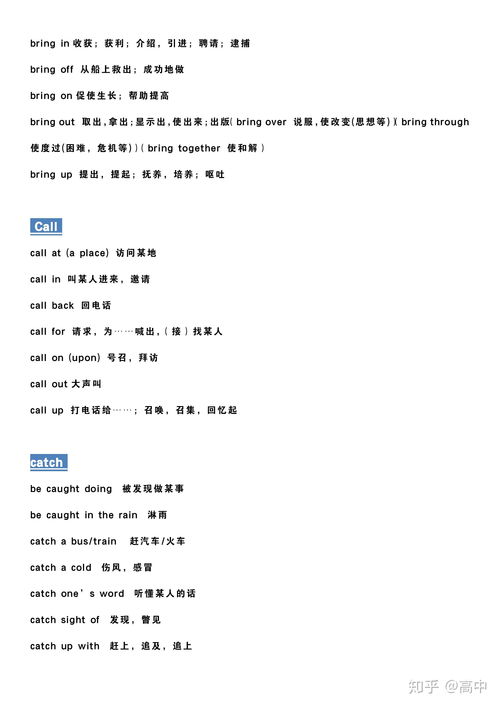以下是动词 "get" 的常用介词搭配及用法总结,附例句帮助理解:

1. Get in
进入(车辆、房间):多用于小空间(如汽车、出租车)。
She got in the car and drove away.
到达(某地):常指到达目的地。
The train got in late last night.
2. Get on
登上(大型交通工具):如公交、飞机、火车。
We got on the bus at 8 AM.
进展(某事):表示继续或处理某事。
How are you getting on with your project?
3. Get off
下车/离开(交通工具):与 "get on" 对应。
Get off the subway at the next station.
停止工作或休息:非正式用法。
I get off work at 6 PM.
4. Get over
克服(困难/疾病):恢复或解决问题。
It took her weeks to get over the flu.
接受(负面情绪):如分手、失望。
He can't get over his ex-girlfriend.
5. Get through
完成(任务):强调克服困难完成。
I finally got through all the paperwork.
接通(电话):成功联系到某人。
I tried to call, but couldn't get through.
6. Get by
勉强维持/应付:指经济或能力上的勉强。
She gets by on a *all salary.
7. Get along (with)
相处融洽:强调人际关系。
Do you get along with your coworkers?
8. Get at
暗示/暗指:指未直接表达的意思。
What are you trying to get at?
9. Get around
传播(消息):非正式用法。
News of the scandal quickly got around.
解决(问题):找到方法处理。
We need to get around this issue.
10. Get into
开始感兴趣/参与:如爱好、行业。
He got into photography last year.
陷入(麻烦):非正式用法。
Don't get into trouble at school!
11. Get out of
逃避(责任):常含负面意味。
He always tries to get out of doing chores.
离开(某地):强调从内部到外部。
Get out of the room now!
12. Get up
起床:最常见用法。
I get up at 7 every morning.
站起来:动作描述。
She got up and left the room.
易混淆点提醒:
交通工具:
Get in → 小空间(car, taxi)
Get on → 大空间(bus, plane, train)
Get over vs. Get through:
Get over 强调恢复情绪或健康
Get through 强调完成困难任务
建议:结合具体语境记忆,多尝试用这些搭配造句,实践中加深理解!


